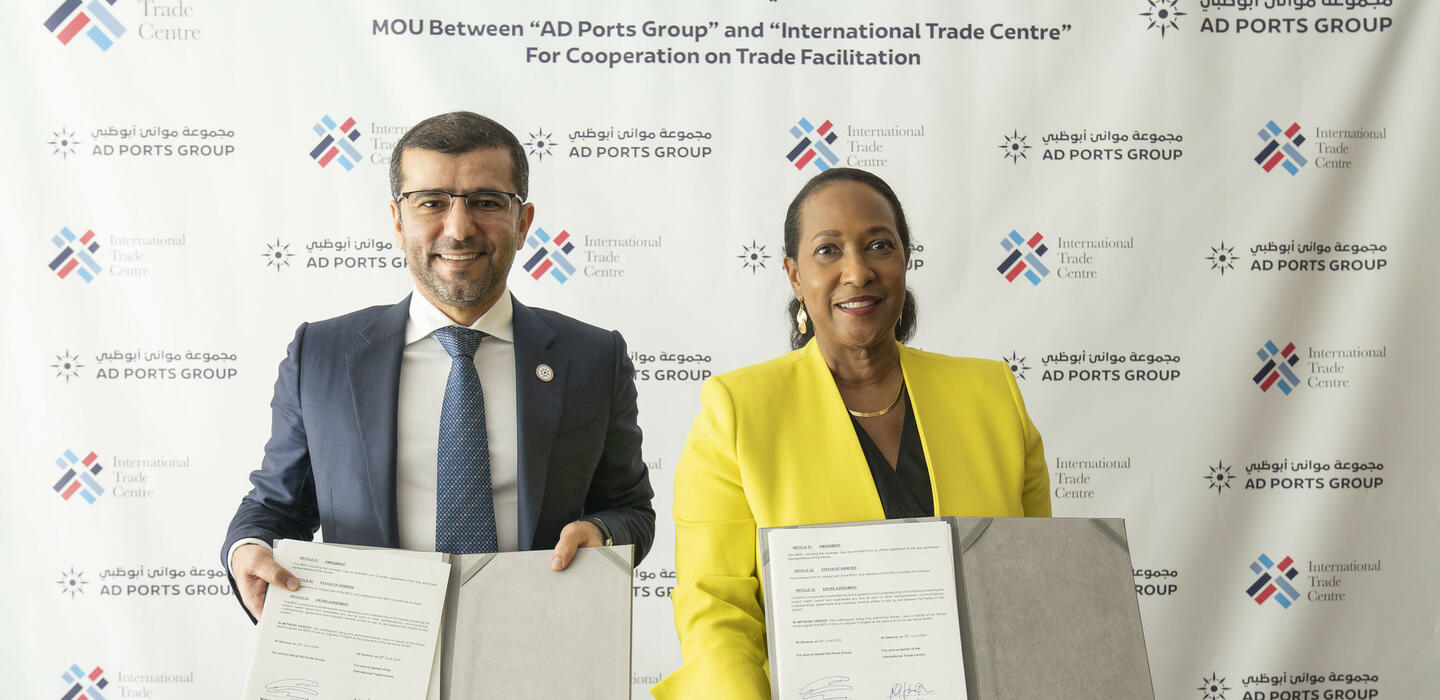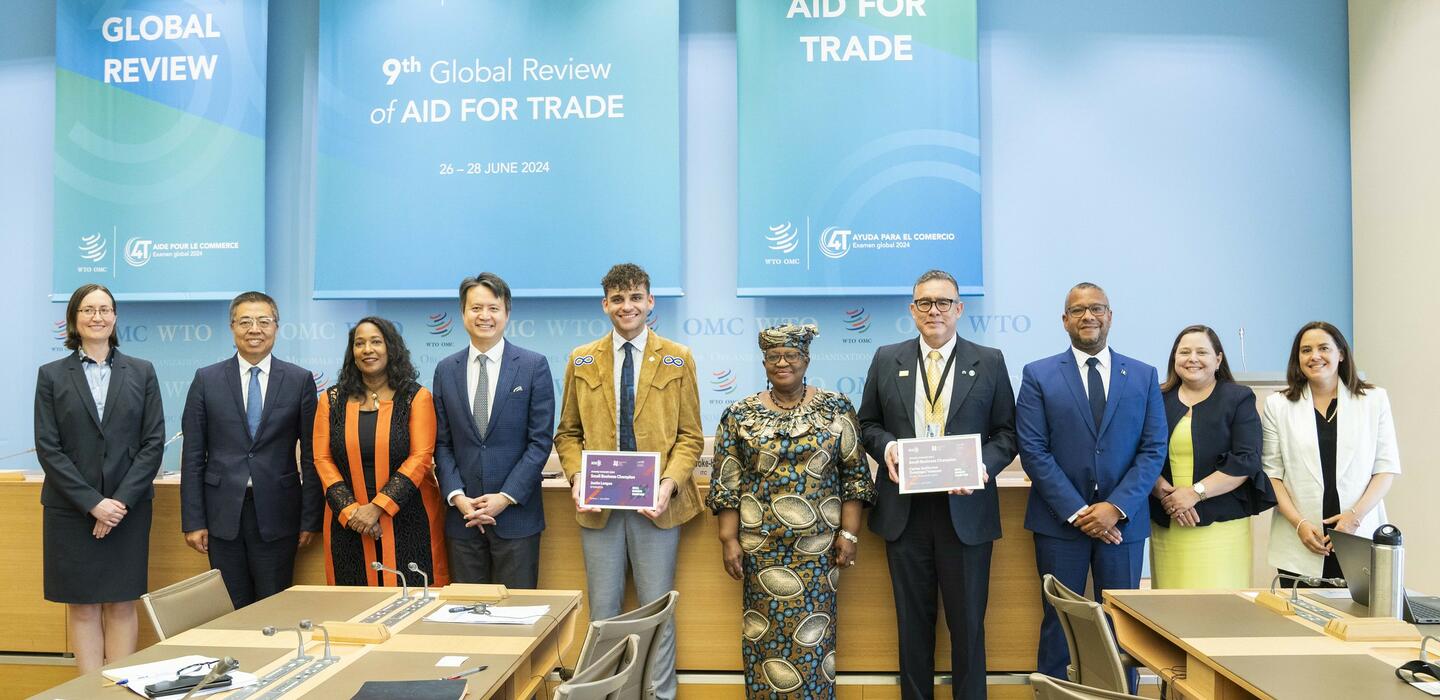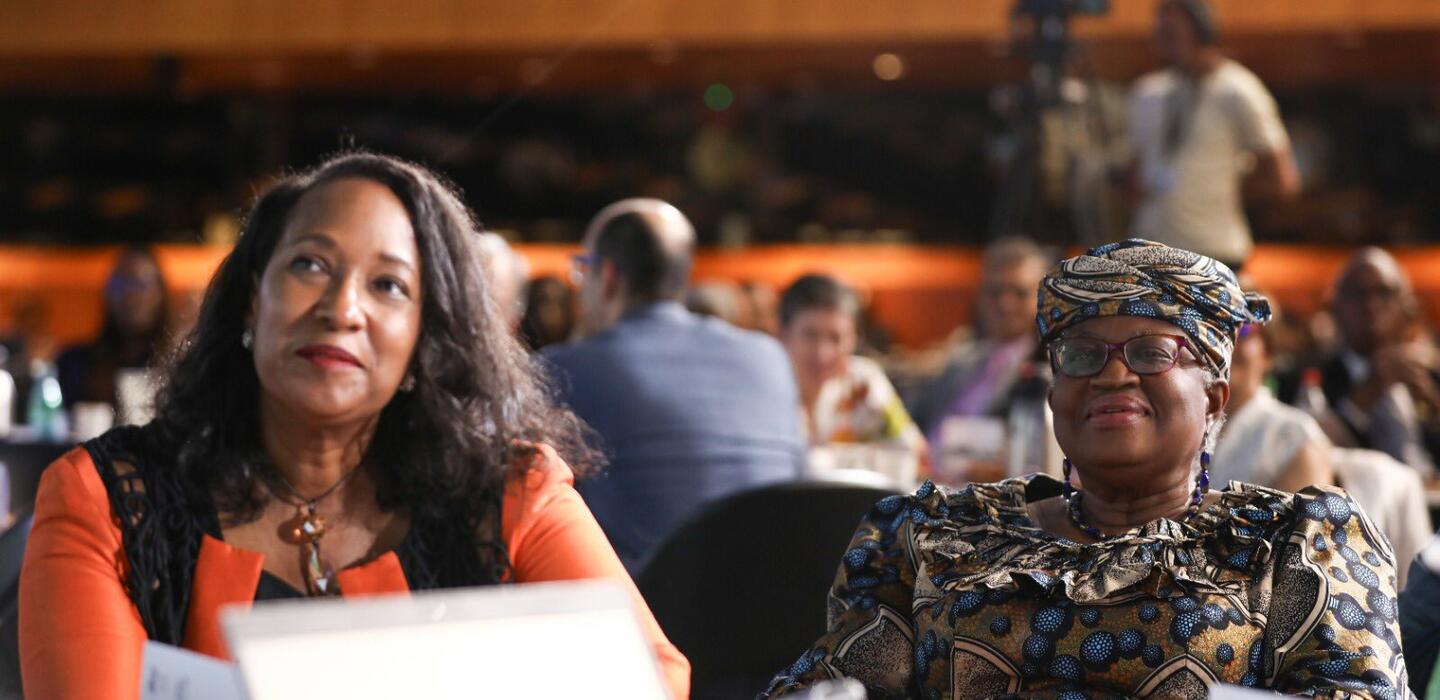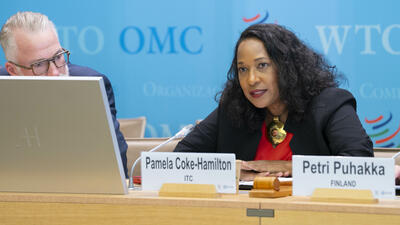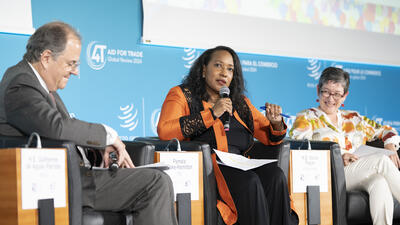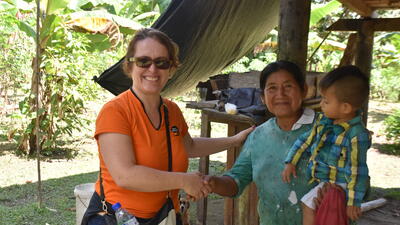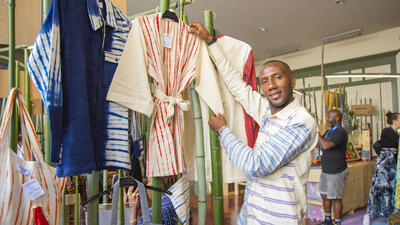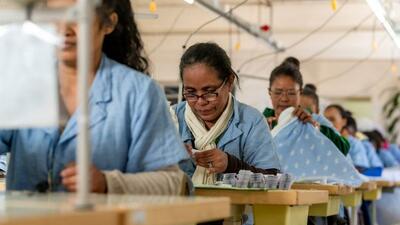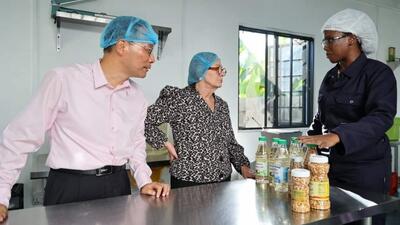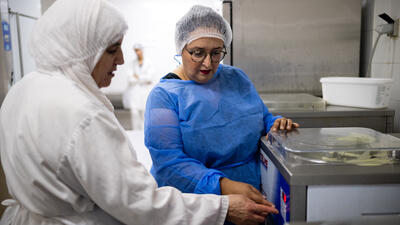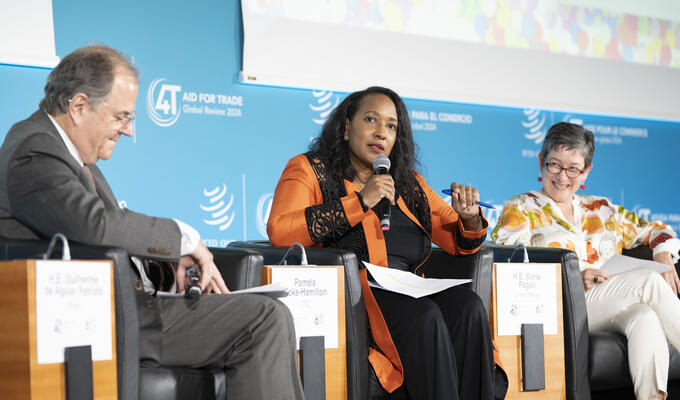
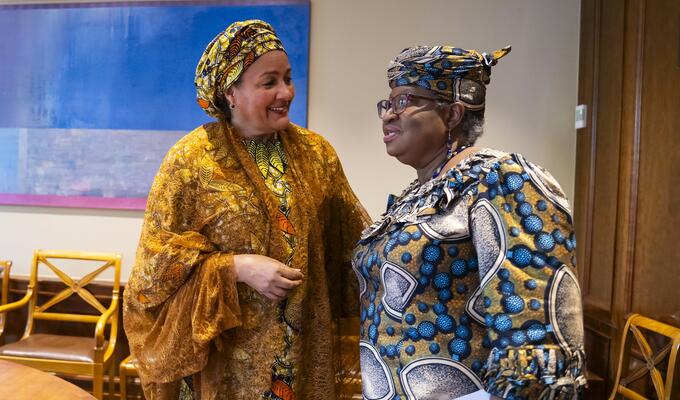
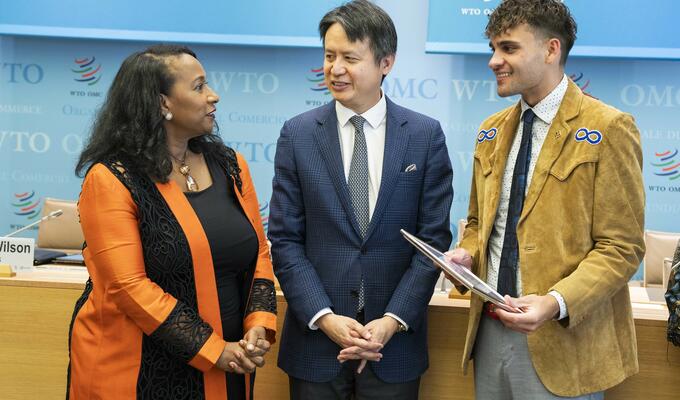
How Aid for Trade brings small business into global commerce
The Aid for Trade initiative brings investment to developing countries so that they benefit more from international trade. Every two years, the World Trade Organization (WTO) convenes a Global Review to assess progress toward that goal.
At the latest meeting last week, the International Trade Centre (ITC) showed how its work brings the benefits of trade to small businesses, with better digital services, solid strategies, and an inclusive approach to policymaking.
The three-day event coincided with ITC’s 60th anniversary, and the day set aside by the United Nations to celebrate small business, Micro-, Small- and Medium-sized Enterprises Day, on 27 June.
Aid for Trade embodies the heart of ITC’s work, making sure developing countries have the skills and resources to benefit from trade – not just as suppliers of raw materials. The Global Review gave a chance to refocus attention on these issues as a priority in a world with competing crises.
Inclusive approaches to trade
Often unseen in trade discussions, persons with disabilities account for one in six adults worldwide. Increasingly discussions are looking to policies that can address their needs. A special panel on the topic looked at how to bring more people with disabilities into trade, with a new working group set to deliver recommendations.
‘Practitioners, like ourselves, need to take a hard look at our programmes and projects and ask whether they’re truly inclusive and accessible — and be ready to overhaul them dramatically if not,’ said ITC Executive Director Pamela Coke-Hamilton.
Investing in people and improving institutions are the cornerstones of effective trade strategies. For two decades, ITC has worked with countries to develop a variety of trade development strategies, based on extensive consultations among government bodies, businesses and support organizations.
‘We saw that even as these strategies became more comprehensive and high quality, countries were struggling to implement them in practice,’ Coke-Hamilton said. That led ITC to develop a dedicated implementation management support package to help. But countries still struggle with implementation. Why?’
To answer that question, experts who design and implement strategies discussed what can go wrong, and what to do about it.
Spinning cotton into jobs
Investment from Aid for Trade is also changing the way major cotton producers in Africa do business. ITC is a member of the Partenariat pour le Coton, a group that includes development agencies, FIFA, and business groups. The partnership is working to improve infrastructure in five big cotton-growing nations -- Benin, Burkina Faso, Chad, Côte d'Ivoire and Mali.
Currently these countries export around $800 million worth of cotton lint, but only $100,000 in cotton thread or T-shirts. By investing in processing facilities, these countries could create their own clothing for domestic and regional sales. FIFA is part of the partnership to support the manufacture of athletic shirts that could drive sales in the region. That could create 500,000 new jobs.
‘Cotton is one of the flagship agricultural products of these countries, with a unique potential to generate downstream value-addition industries,’ Jean-Marie Paugam, Deputy Director-General of the WTO, during a panel on the topic. ‘This presents a real opportunity to create sustainable jobs and lift youth and women out of poverty.’
Streamlining trade processes
Earlier this year, 125 WTO members took another step in working on the Investment Facilitation for Development (IFD) Agreement. Red tape and inefficient processes can make trade difficult. The new agreement aligns with ITC projects that streamline trade procedures while making them more transparent.
A major step toward making trade easier came with the signing of a memorandum of understanding between ITC and the Abu Dhabi Ports Group, whose Khalifa Port is a major gateway to fast-growing Gulf markets.
The collaboration will drive new digital solutions for trade and logistics, tailored to small businesses, especially ones run by women.
Digital tools bring small business to global markets
Digital tools have already transformed the way small businesses work. E-commerce opened global markets to entrepreneurs even in remote communities, while making it easier for women and youth to get into business. ITC works with major online platforms to make sure small traders benefit from e-commerce. WTO and the World Bank are working with a group of African countries on policy reforms to boost online sales.
Kuo Zhang, President of Alibaba.com, spoke about how to better access the Chinese market through his platform.
Bangladesh exports have grown, bringing new challenges
Bangladesh’s growing trade has boosted its economy. That means the country in 2026 will leave the ranks of least developed countries, which could mean the loss of some preferential tariffs. That could leave small businesses in a bind, especially ones run by women.
ITC and the United Kingdom have worked within the Aid for Trade framework to set out a transition for Bangladesh, including policy recommendations that would ensure trade continues to work for men and women.




